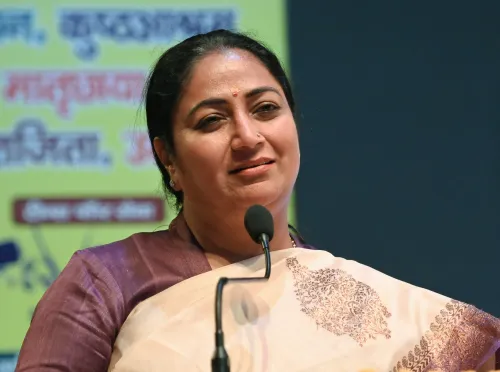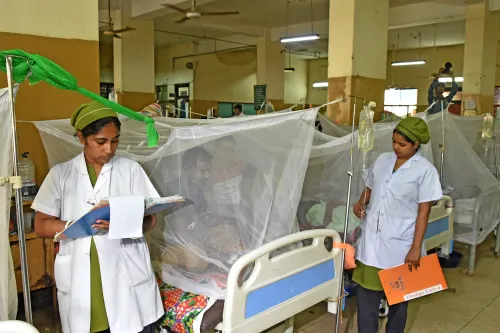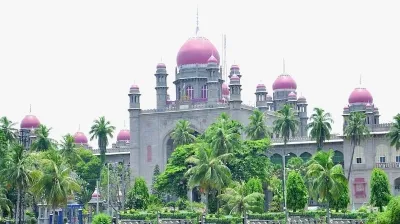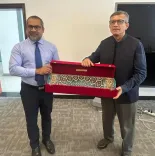Can Nitish Kumar's Welfare Initiatives with Central Support Overcome Anti-Incumbency?
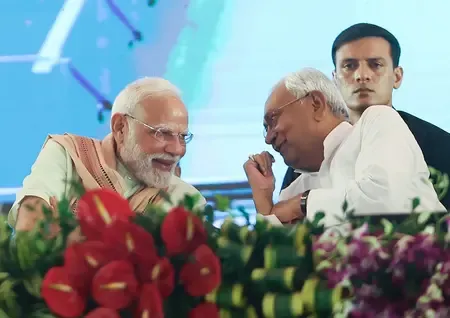
Synopsis
Key Takeaways
- Nitish Kumar's administration has focused on social welfare and empowerment.
- The Union government's support has been pivotal in implementing these initiatives.
- Women comprise a significant voting demographic in Bihar.
- Various programs aim to uplift backward and marginalized communities.
- The impact of these schemes will be tested in the upcoming elections.
New Delhi, Oct 7 (NationPress) For almost two decades, Bihar's Chief Minister Nitish Kumar has remained a prominent figure in the state. His administration has consistently focused on social justice, women’s empowerment, and the advancement of backward and marginalized communities.
With the support of the Union government—both politically and financially—his administration has introduced numerous welfare programs that have transformed Bihar’s social fabric.
As the state prepares for another Assembly election, these welfare programs are anticipated to significantly influence voter attitudes, especially since women make up over 47% of the 7.4 crore total voters, with backward classes accounting for approximately 36%.
Many female voters have shown a preference for the Nitish Kumar-led National Democratic Alliance (NDA) government due to its initiatives aimed at supporting their interests. To counter the anti-incumbency sentiment, the Union government has also introduced several initiatives. To date, 1.21 crore women in Bihar have received a combined total of Rs 12,100 crore under the Mukhyamantri Mahila Rojgar Yojana to start their businesses, with additional funds to follow since the model code of conduct does not apply to ongoing schemes.
During the launch of the scheme's first installment on September 26, Prime Minister Narendra Modi remarked on the collaboration between him and Nitish Kumar for the benefit, prosperity, and dignity of Bihar's women. The scheme starts with an initial financial aid of Rs 10,000, and can extend up to Rs 2 lakh depending on the business performance.
The Prime Minister highlighted that women in Bihar can now establish shops for groceries, utensils, cosmetics, toys, and stationery. They can also engage in livestock-related ventures such as cattle rearing and poultry farming. Essential training will be provided for all these businesses. Women are also beneficiaries of Union government initiatives like Jan Dhan Yojana, Lakhpati Didi, Mudra Yojana, Drone Didi campaign, Bima Sakhi campaign, and Bank Didi.
Additionally, state programs such as the Mukhyamantri Balika Cycle Yojana and scholarship initiatives for girls from backward and economically weaker families have been empowering the youth. Furthermore, the state government has mandated 50% reservation for women in local bodies, fostering a new wave of grassroots female leaders. This initiative has not only provided women with a political voice but has also transformed Bihar’s governance landscape.
Nitish Kumar has introduced measures to establish women’s helplines and fast-track courts to combat domestic violence and harassment. Additionally, the monthly pension for widows and elderly women has seen a significant increase from Rs 400 to Rs 1,100. The collaborative efforts to enhance women's lives have garnered praise. Welfare programs aimed at backward and marginalized communities have seen the state, with the Union government’s assistance, expand residential schools and hostels for these groups, along with scholarships for OBC, EBC, and SC/ST students.
Moreover, initiatives like the Kushal Yuva Programme are providing training in IT, communication, and entrepreneurship for the youth from backward classes. Through state-supported corporations, backward caste entrepreneurs have been granted access to credit and subsidies, while the Union government’s flagship programs like MGNREGA and PM-Kisan have been integrated with state schemes to maximize benefits for the rural poor and backward communities.
The Nitish administration has also advocated for EBCs, a demographic often overlooked compared to larger OBC categories. By ensuring their representation in local bodies and customizing welfare programs, he has cultivated a strong support base among them.
Many of Bihar’s welfare initiatives have been co-financed by the Union government. For instance, the expansion of Jeevika was supported by central funds and international organizations, while infrastructure projects such as roads, electricity, and rural housing have been carried out under centrally sponsored schemes like Pradhan Mantri Gram Sadak Yojana and Saubhagya Yojana. These initiatives have allowed Nitish Kumar to align state programs with the Union’s priorities.
The state government has vigorously implemented Ujjwala Yojana (providing free LPG connections) and the Swachh Bharat Mission (toilets for rural households) in Bihar, with Nitish Kumar ensuring effective last-mile delivery.


